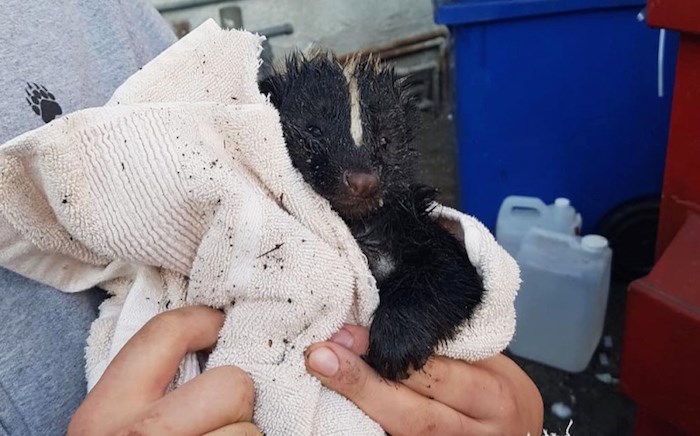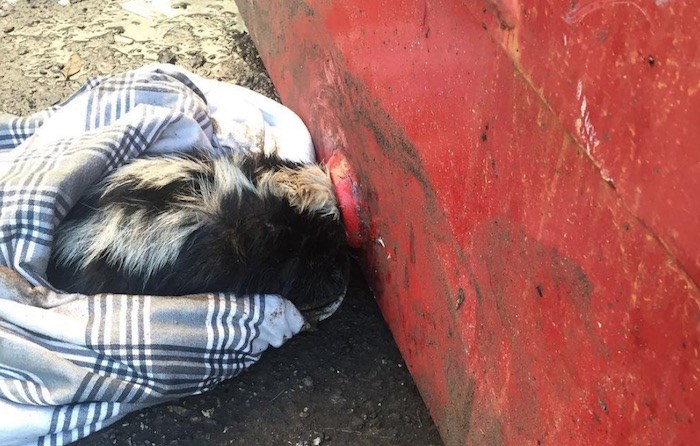is calling on dumpster owners to take measures to prevent wildlife from getting trapped in drainage holes.
The request comes after the fourth skunk in two weeks got its head stuck in a bin searching for food in Â鶹´«Ă˝Ół»on Saturday.
 It took up to five hours to rescue this baby skunk after it got its head trapped in a dumpster drainage hole. Photograph By CRITTER CARE WILDLIFE SOCIETY
It took up to five hours to rescue this baby skunk after it got its head trapped in a dumpster drainage hole. Photograph By CRITTER CARE WILDLIFE SOCIETY
Nathan Wagstaffe, an animal care supervisor at the Langley centre, says it’s unusual for this to be happening so often.
He believes the skunks are getting stuck in newer dumpsters with flawed designs.
"We’ve had one or two occasionally, but nothing like this high demand," Wagstaffe says.
"Usually skunks get their heads stuck in ice cream tubs or coffee cups or things along them lines."
 Photograph By CRITTER CARE WILDLIFE SOCIETY
Photograph By CRITTER CARE WILDLIFE SOCIETY
The dumpsters have drainage holes just big enough for a skunk to squeeze its head in but not out.
"I think it's a bad design. It’s frustrating more than anything, because it’s almost like neglect," Wagstaffe says.
"They are not thinking about the consequences of having a design like this.
"It is fall, and moving towards winter, so the skunks are getting hungrier, so they’re searching for more food and smell it coming from the dumpsters and they're sticking their heads in."
In some cases it has taken up to five hours to save a skunk. Each rescue has also required the Â鶹´«Ă˝Ół»Fire Rescue Services' help and on two occasions a grind saw was needed to release the little critters.
Of the four skunks, sadly one could not be saved.
“Two of them are currently with us still and one of them was trapped and released within an hour,” Wagstaffe says.
“They are on antibiotics and pain relief, but because it is a neck injury it is a high-risk area, so it’s not to say they can’t have complications down the line, but so far they are slowly making a good recovery.”
The City of Â鶹´«Ă˝Ół»sanitation team says the City does not have dumpster design guidelines specifically requiring mesh over any ventilation or drainage holes.
However, the  states that all private contractors must not "cause, permit, suffer or allow rain or pests to enter a private container."
CCWS assistant executive director Winona Reinsma hopes raising awareness will help solve the issue.
“It is quite devastating because the owners of the dumpsters could do something about it,” Reinsma says.
“Mesh would be an easy fix, the bins would still drain, it wouldn’t cause a problem and we wouldn’t be risking the wildlife.”
CCWS provides short and long-term care and rehabilitation to mammal species native to B.C.
If you find an animal in need of help contact the CCWS hospital line (604) 530-2064 right away.


